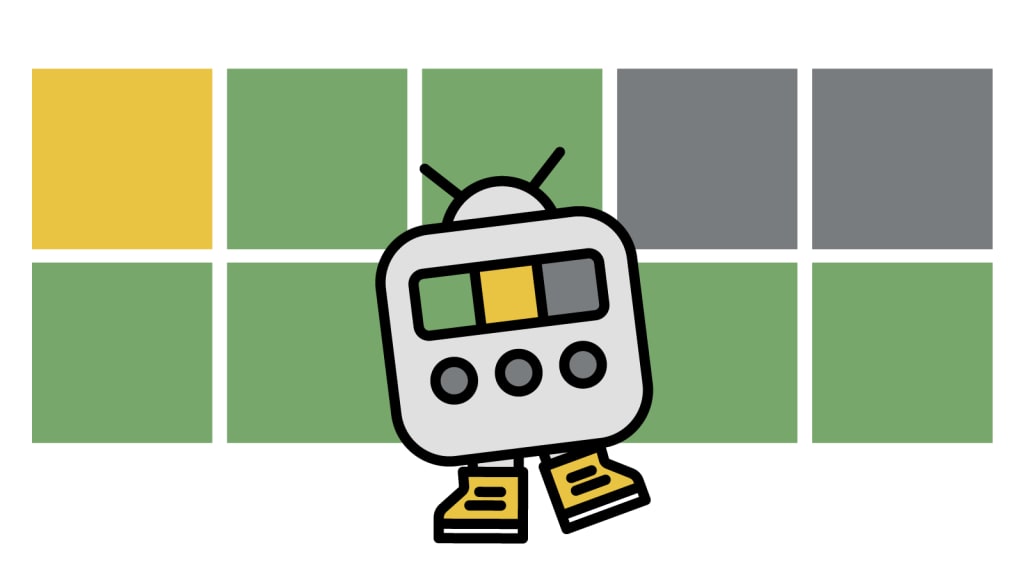Mastering Wordle NYTimes: Tips and Strategies for Wordplay Success
Wordle NYTimes has captivated players with its addictive word-guessing gameplay and linguistic challenges. Becoming a master in Wordle NYTimes requires a combination of vocabulary skills, pattern recognition, and strategic thinking. In this article, we will provide valuable tips and strategies to help you improve your performance and elevate your wordplay abilities to master the game.

The Basics of Wordle NYTimes
Wordle NYTimes is a word-guessing game where players attempt to decipher a five-letter hidden word within six attempts. Each guess is met with feedback indicating which letters are correct and in the right position, and which letters are correct but in the wrong position. Armed with this feedback, players must strategically narrow down the possibilities and deduce the correct word before their attempts run out. The objective is to find the hidden word in as few attempts as possible, challenging players' vocabulary and analytical skills.
Simple and Addictive Gameplay
One of the key factors behind Wordle NYTimes' success is its simple yet addictive gameplay. The game's interface is minimalistic, allowing players to focus solely on guessing the word. The limited number of attempts creates a sense of urgency and heightens the excitement as players strive to unravel the hidden word. The game's addictive nature lies in its ability to provide instant feedback and a gratifying sense of accomplishment when the correct word is revealed.
Engaging Wordplay and Vocabulary Development
Wordle NYTimes offers a unique platform for players to engage in wordplay and enhance their vocabulary. By presenting players with a diverse range of words, the game stimulates language learning and promotes vocabulary development. Players are exposed to new words, challenged to think critically, and encouraged to explore different word combinations. This not only fosters linguistic skills but also cultivates a love for words and language.
Social Sharing and Community Building
Wordle NYTimes has fostered a strong sense of community among players. The game's simplicity and addictive nature make it ideal for sharing experiences and achievements with friends and fellow players. Players often take to social media platforms to share their progress, discuss strategies, and celebrate their word-guessing triumphs. This sense of camaraderie and friendly competition adds an extra layer of enjoyment to the game.
Accessibility and Availability
One of the reasons Wordle NYTimes has gained widespread popularity is its accessibility. The game is accessible via web browsers, making it compatible with various devices, including computers, smartphones, and tablets. Additionally, Wordle NYTimes is free to play, eliminating barriers to entry and allowing players from all walks of life to enjoy the game.
Build a Strong Vocabulary
A robust vocabulary is the foundation of success in Wordle NYTimes. Expand your word knowledge by reading extensively, playing word games, and engaging with language-learning resources. Familiarize yourself with uncommon and less-used words, as they often play a crucial role in solving Wordle NYTimes puzzles. Regularly learning new words and their meanings will enhance your chances of correctly guessing the hidden word.
Deductive Reasoning and Pattern Recognition
Wordle NYTimes challenges players to deduce the correct word by analyzing the feedback provided with each guess. Pay close attention to the letter positions and which letters are correct but in the wrong position. Look for patterns and use deductive reasoning to eliminate possibilities and narrow down potential words. This analytical approach will increase your efficiency in solving puzzles and minimize the number of attempts needed to find the correct word.
Strategic Guessing
Strategic guessing is key to mastering Wordle NYTimes. Start with words that include frequently used letters like E, A, I, O, and S. These letters are more likely to appear in the hidden word. By strategically placing these letters in different positions, you can gather valuable feedback and gain insights into the word's composition. Adjust your guesses based on the feedback received to maximize your chances of success.
Use Word Associations and Word Families
Word associations and word families can be powerful tools in Wordle NYTimes. When you receive feedback on correct letters, consider related words or words that share a common root or prefix. For example, if you guess "SHARP" and receive feedback that the letter 'A' is correct, you can explore words like "SHAPE" or "SHADE" that share a similar letter pattern. This technique broadens your possibilities and helps you navigate the word space more effectively.
Learn from Past Games
Reviewing past games can be a valuable learning experience in Wordle NYTimes. Analyze the patterns, words, and strategies you employed in previous puzzles. Identify your strengths and weaknesses, and reflect on your decision-making process. This self-reflection will enable you to refine your approach and improve your word-guessing skills over time.
Practice Regularly
Like any skill, mastering Wordle NYTimes requires practice. Make it a habit to play the game consistently and challenge yourself with different word combinations. The more you engage with the game, the better you will become at recognizing word patterns, developing strategic thinking, and expanding your vocabulary. Dedicate time to regular practice sessions to hone your skills and increase your success rate.
Conclusion
Becoming a master in Wordle NYTimes is a journey that combines vocabulary development, pattern recognition, deductive reasoning, and strategic guessing. By building a strong vocabulary, honing your analytical skills, and employing effective strategies, you can elevate your wordplay abilities and achieve consistent success in the game. Remember, practice and perseverance are key to mastery. So, dive into the world of Wordle NYTimes, embrace the linguistic challenges, and embark on a rewarding journey towards wordplay excellence.
About the Creator
Enjoyed the story? Support the Creator.
Subscribe for free to receive all their stories in your feed. You could also pledge your support or give them a one-off tip, letting them know you appreciate their work.





Comments
There are no comments for this story
Be the first to respond and start the conversation.